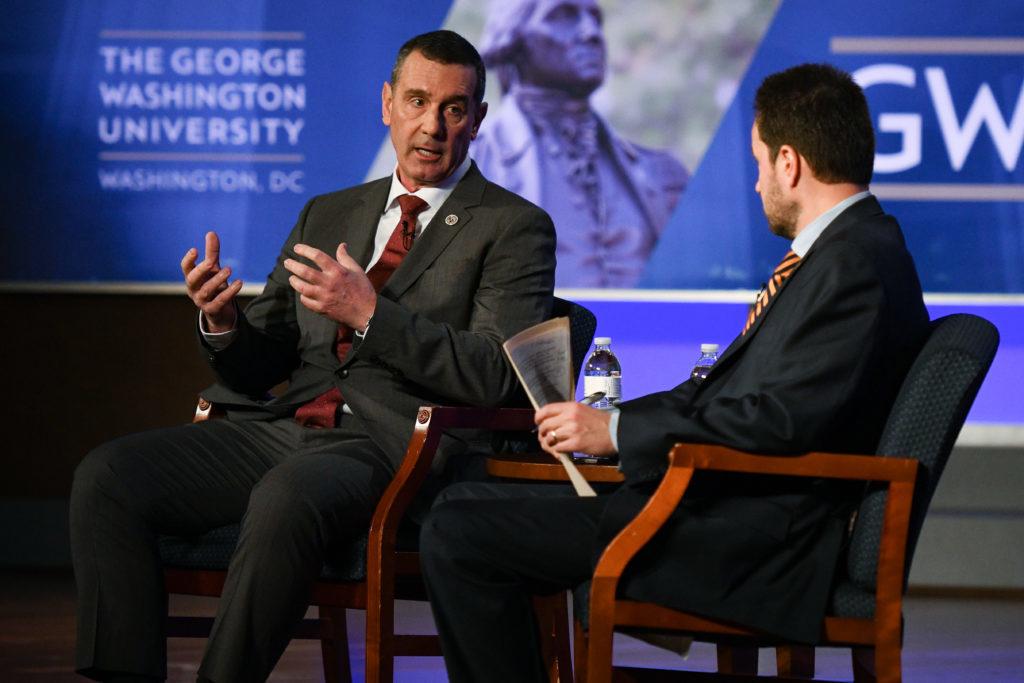The head of the Transportation Security Administration discussed the challenges the agency faces – including cybersecurity – in a speech Wednesday at Jack Morton Auditorium.
David Pekoske, the new administrator of the Transportation Security Administration, delivered a presentation billed as a “State of TSA” address on the agency’s work in the last year, its future goals and transportation threats that the U.S. faces.
Following the speech, Pekoske held a discussion moderated by Frank Cilluffo, the associate vice president and director of the Center for Cyber and Homeland Security, which hosted the discussion.
Pekoske said over the past year the TSA has been working to develop innovative technologies, expand its pre-check partnerships and improve global aviation security. He also referenced the influence of the 9/11 terror attacks as a motivating factor for TSA officers to continue to develop new security strategies.
“The memory of 9/11 motivates all of us to do our critical work in support of our fellow citizens every day in airports and surface transportations across our great country and beyond,” he said.
Pekoske said the TSA’s new strategy focuses on encouraging innovation and more training of its workforce with the goal of staying ahead of potential threats.
“Security is our common objective and we can best achieve it through shared and complementary effort,” he said. “That is the essence of the new strategy, one that will guide us to accomplish our mission of protecting America’s transportation systems, while ensuring the freedom of movement of people and commerce.”
Pekoske said the agency plans to change its motto from “not on my watch” to “not on our watch” to show that everyone has a shared role in security and that the agency needs to build its relationship with members of the public.
Pekoske added that many new systems the TSA has brought to checkpoints in airports have not been paid for by the TSA, but instead by private companies.
He said the TSA’s overall strategy involves committing itself more to its own staff and invest more in its workforce.
“A commitment to our people to me means significantly investing in our workforce so that they have the tools, the procedures and the training to be able to do the job that we ask them to do which is a very difficult job to do, and you have to be on your toes 100 percent of the time,” Pekoske said.





